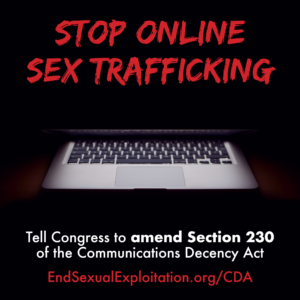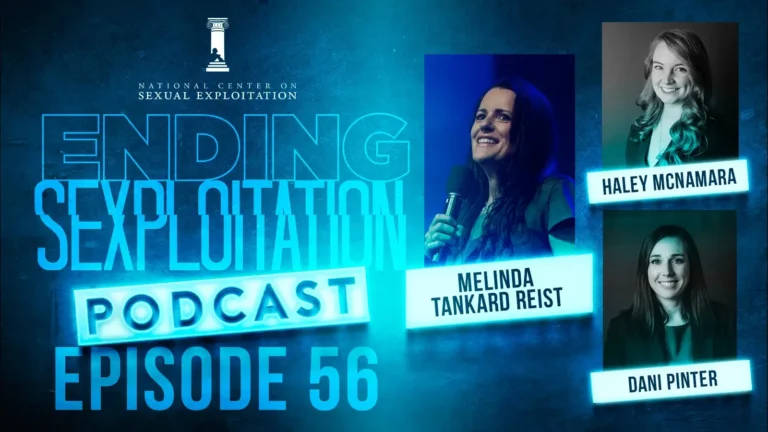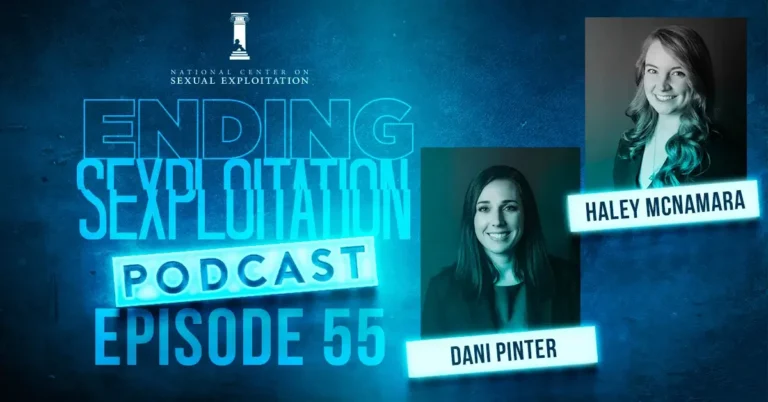In 2017, two Bills were introduced in Congress (S. 1693 and H.R. 1865) to amend 47 USC 230 of the Communications Decency Act. While NCOSE has reservations about the language of these Bills and hopes changes will be made during the legislative process, we laud the Bill’s sponsors and support their efforts.
Unfortunately, some in the technology community, including Google, are fighting any changes to Section 230 – even if the changes would lead to a drastic reduction in online sex trafficking.
Google has blitzed Congressional offices with this email asking your Senators and Representatives to oppose S. 1693 and H.R. 1865.
Moreover, a coalition of groups headed by Consumer Watchdog recently released a report, entitled How Google’s Backing of Backpage Protects Child Sex Trafficking, which states in part, “An analysis of public records, tax documents and legal filings and other publicly-available documents shows Google has financed and supported a broad array of groups and individuals who have fought aggressively to thwart legal challenges to Backpage’s business model.”
In addition, a Harvard professor alleges that Google earned over a billion dollars in revenue from unlawful advertising that Google failed to block, which included ads for child sex trafficking.
Reportedly, lobbyists for Google also helped eliminate a version of a bill that would have required firms to determine the age of people appearing in their online adult ads.
Corporate profits are never more important than the lives of children and adults who are victims of online sex trafficking. Google and others in the tech industry should change their position on this crucial issue and support amending the Communications Decency Act.
LEARN MORE ABOUT THE COMMUNICATIONS DECENCY ACT HERE




